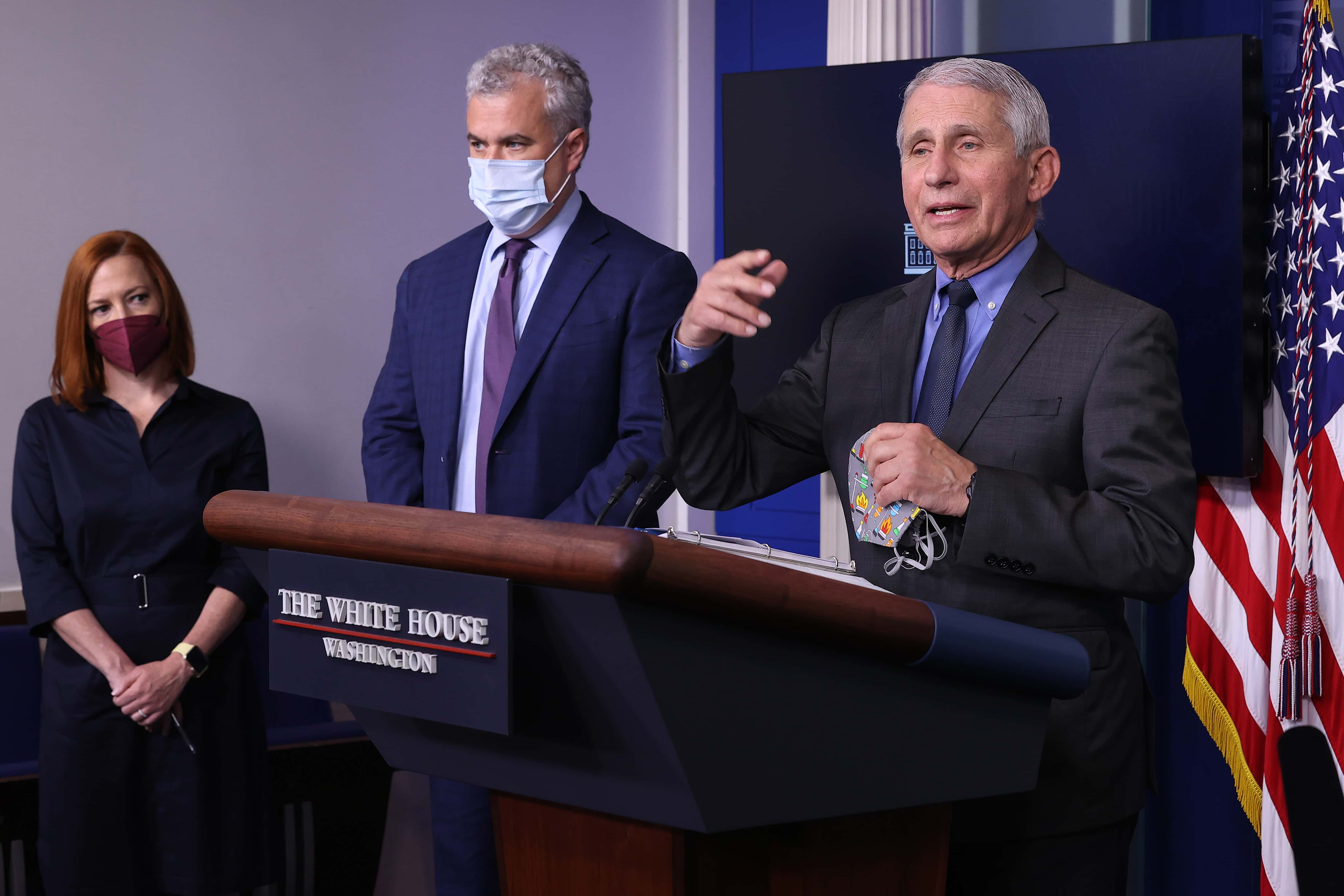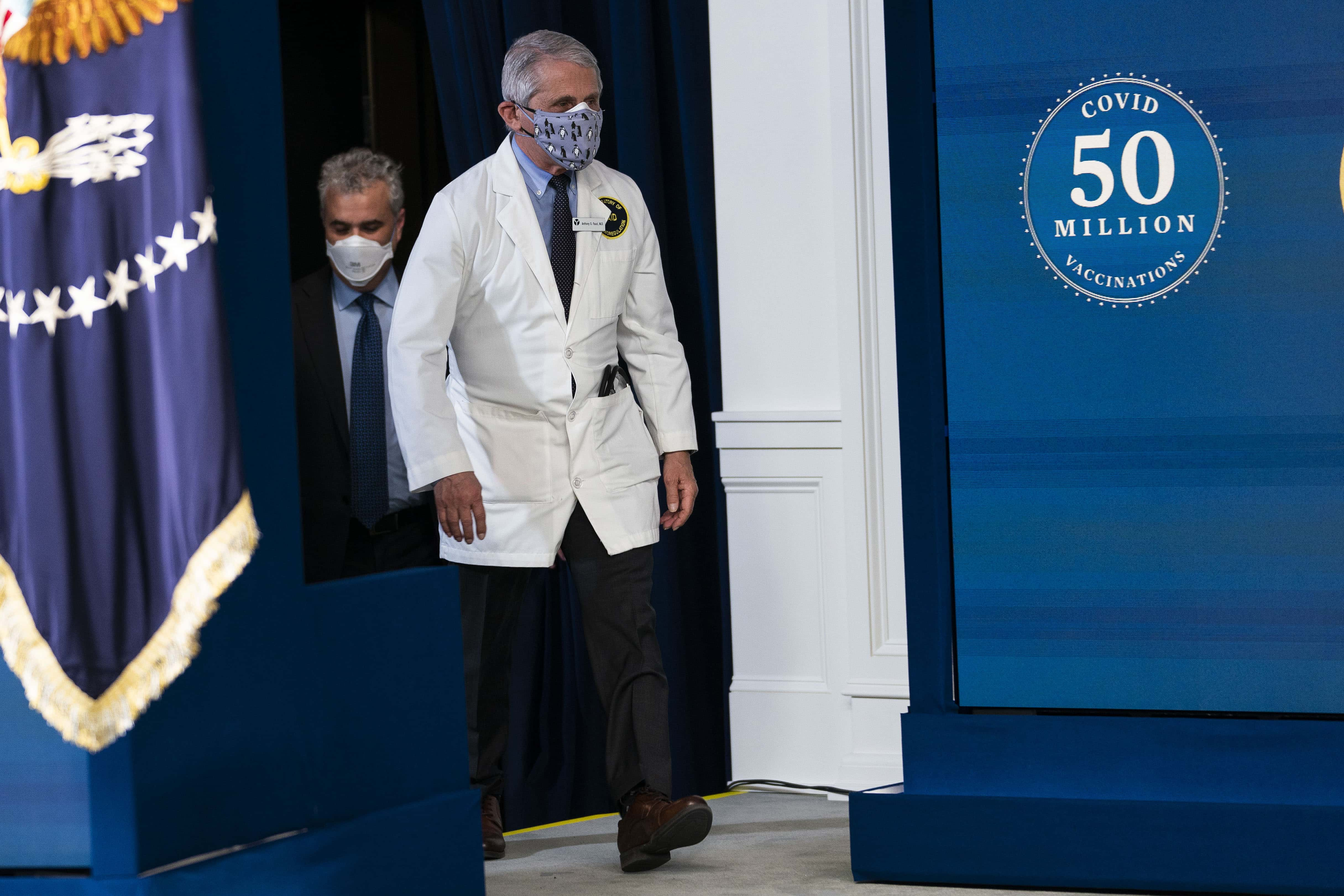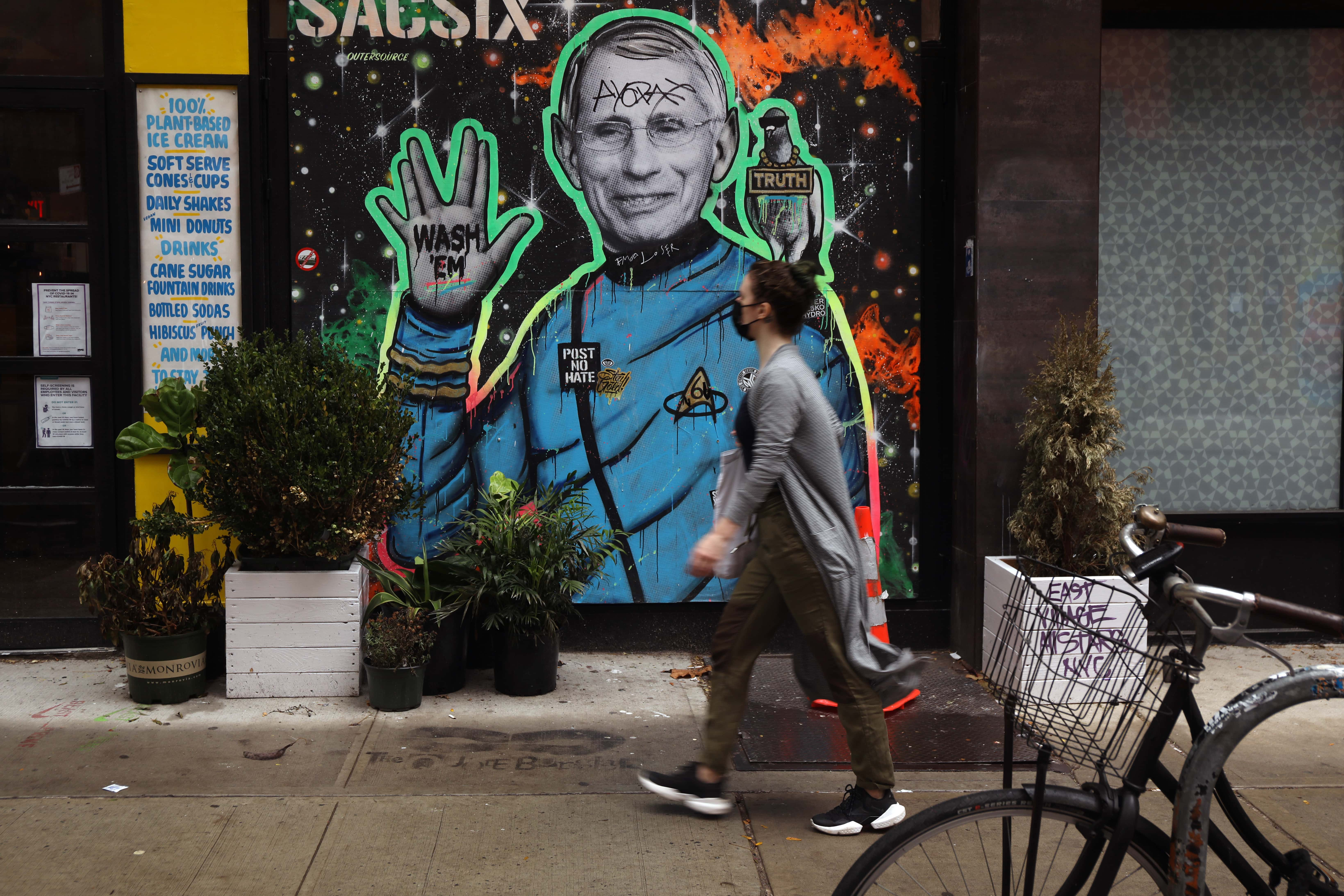Anthony Fauci emails: From praises to threats, here are some important conversation right from his inbox

As Covid-19 gripped the US and the world in general, Dr Anthony Fauci, Washington’s leading expert on infectious diseases, came out as the country's leading force in dealing with the pandemic last year. While there have been praises and controversies about him, we do not know much about his own world.
The Washington Post has acquired Dr Fauci's emails to have a peek into his world in the early frantic days of the pandemic, in March-April, 2020. From mask mandates to what keeps him up at night, the emails cover everything. The 866-page acquirement was part of a Freedom of Information Act request.
RELATED ARTICLES
'Let's work together'
One of the mails in question is between Dr Fauci and top Chinese health official Geroge Gao. Gao had told Science magazine that the United States and other western nations were making a “big mistake” by not telling people to mask up. After the report, Gao got worried that the comment might upset his longtime friend Fauci and wrote to him to clear the air.
“I saw the Science interview, how could I say such a word ‘big mistake’ about others? That was journalist’s wording. Hope you understand,” Gao, director of the Chinese Center for Disease Control and Prevention, wrote to Fauci in a March 28 email. "Let's work together to get the virus out of the earth.” Fauci replied: “I understand completely. No problem. We will get through this together.”

Sometime later, Gao, a member of the US National Academy of Sciences, emailed again: “I saw some news (hope it is fake) that [you] are being attacked by some people. Hope you are well under such a irrational situation,” Gao wrote on April 8. “Thank you for your kind note,” Fauci replied three days later. “All is well despite some crazy people in this world.”
1,000 emails a day
Records show that Fauci was inundated with correspondence from colleagues, hospital administrators, foreign governments and random strangers — about 1,000 messages a day, he says at one point — writing to seek his advice, solicit his help or simply offer encouragement.
The longtime director of the National Institute of Allergy and Infectious Diseases was struggling to bring coherence as the medical director of the National Football League Players Association asked Fauci for a confidential briefing on how to safely start the next NFL season. A documentary filmmaker working on a forthcoming Disney-backed biopic asked to ride along as Fauci drove to work. An adviser to Microsoft co-founder Bill Gates expressed concern about Fauci’s health. And a senior House Republican told Fauci to “keep being a science truth teller” despite skepticism about the virus.
“I was getting every single kind of question, mostly people who were a little bit confused about the mixed messages that were coming out of the White House and wanted to know what’s the real scoop,” Fauci said in a recent interview. “I have a reputation that I respond to people when they ask for help, even if it takes a long time. And it’s very time consuming, but I do respond."
'Watch your back'
As skepticism about masks, the virus itself, China and threats from “crazy people” started being reaching Fauci, officials assigned him a full-time security detail. On April 26, he received an email from Freddie Barnes, a military veteran and chaplain with North Carolina’s Department of Public Safety writing “to express my profound appreciation to you for your work during the Covid-19 pandemic.”

“I especially appreciate how you have spent considerable time and capital reaching out to the Black and brown communities,” Barnes wrote. “For you to be intentional about keeping minority communities in the loop is commendable, especially since these communities will be absorbing the disproportionate share of sicknesses and deaths coming from Covid-19.”
He ended the email with a warning: “Take care and ‘Cover your six’ ” — military slang for “watch your back.”
What keeps him up at night
On April 14, 2020, a day when nearly 3,000 Americans would die of Covid-19, Fauci received an earnest list of questions from a senior official in the Office of the Surgeon General in the Army and US Army Medical Command.
“You are the voice of reason for millions of concerned citizens,” wrote the official, whose name was redacted in the released emails. A list of questions followed: Can the virus be contracted from a corpse? Can someone who has taken hydroxychloroquine for years contract the virus? Are masks and gloves truly effective? Finally: “What keeps you up at night, regarding Covid-19?”
Fauci replied a few days later: “I have said in the past that what keeps me up at night is the possibility of a pandemic respiratory infection. We are in that now, and what keeps me up at night is the response, a major part of which is the development of an effective vaccine and treatments for Covid-19.”
'Seriously worried about you'
On April 1, the emails show, Fauci spoke by phone with Bill Gates about a global vaccine effort. The doctor said he was “enthusiastic about moving forward on a collaborative and hopefully synergistic approach to Covid-19” involving federal health agencies and the Bill and Melinda Gates Foundation, according to the emails. Gates quickly relayed the conversation to Emilio Emini, a top foundation executive who was tasked with coordinating vaccine efforts. Emini immediately emailed Fauci — and raised concerns about the doctor’s health.
“I see you on TV almost every day, and although you continue to have considerable energy, I am seriously worried about you,” Emini wrote. “The nation and the world absolutely need your leadership.” Fauci wrote back at 1.53 am, saying, “I will try to engage as much as I can given my current circumstances.”
'Science truth-teller'
On April 10, Rep Fred Upton (R-Mich) emailed Fauci a question about hydroxychloroquine, a drug Donald Trump was aggressively pushing as a treatment for the coronavirus despite scant evidence of its efficacy. The drug is used to treat lupus, and Upton asked whether anyone with that disease had contracted the coronavirus.
The next day, Fauci wrote back that the answer was “almost certainly yes” but that there was not enough data to make any final conclusions. Their electronic rapport intensified when Upton, a moderate and one of 10 House Republicans who voted to impeach Trump after the January 6 Capitol riots, tried to explain why some of his colleagues were trying to block more money for the US pandemic response.
“Keep being a science truth teller,” Upton urged Fauci in another email. Fauci responded five hours later: “Thanks, Fred. I appreciate your note.”
'Not at all pleasant'
Everyone was not praising Fauci. Near midnight on April 11, the day before Easter, Marc Short, Vice President Mike Pence’s chief of staff, emailed Fauci about some apparently crossed wires. “You correctly noticed the symptoms but misdiagnosed the root cause,” Short wrote in a heavily redacted email that closes: “Apologies for a poor poker face.” At the time, Trump was anxiously trying to reopen the economy despite Fauci’s reluctance. Less than 13 hours after receiving Short’s email, Fauci responded: “Thanks for the note. Understood. I wish you a peaceful and enjoyable day with your family.”
But there were many fans and at times, Fauci grew bewildered by the public fascination with him, the emails show. On March 31, a colleague at the National Institutes of Health sent Fauci an article with the headline, “Fauci socks, Fauci doughnuts, Fauci fan art: The coronavirus expert attracts a cult following.”
“Truly surrealistic. Hopefully, this all stops soon,” Fauci replied. In another note, he added: “It is not at all pleasant, that is for sure.”
'Cuomo Crush and Fauci Fever'
On April 7, Fauci received a Google News alert for his name. One of the articles was titled, “‘Cuomo Crush and ‘Fauci Fever’ — Sexualization of These Men Is a Real Thing on the Internet.” Fauci forwarded the note to someone (the name and email address are redacted) and urged the person to click on the link.
“It will blow your mind,” the doctor wrote. “Our society is really totally nuts.”

When a White House news briefing was canceled one day — freeing Fauci from a TV appearance — he sent his staff a message with two smiley-face emojis. Most of the emails were serious, however. In one exchange, a former acquaintance who described himself as “just a working class guy” who once drank beers with Fauci in Boulder, Colorado, urges the doctor to “stand up to power and speak the harsh truth to the people of this country.”
“The leadership from the top is utterly lacking and incompetent and dangerous to the American people… We need a unified and professional federal response to this unprecedented crisis,” the man wrote. ”My dad was born during the first worldwide modern pandemic, and I don’t really want to see him leave from this current one.”
Fauci responded within hours: “Thank you for your note,” he wrote. “I hear you!”










